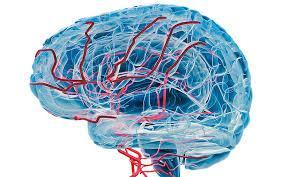“Where’s my phone?” “I’m positive my keys were right here!” “What’s that password?” We’ve all experienced such “senior moments” or watched another’s frustration as he or she draws a complete blank about something. We usually recover, brush it off as a minor irritant, laugh and go about our day. The dictionary defines this as “a temporary mental lapse (humorously attributed to the gradual loss of one’s mental faculties as one grows older).”
The National Institute on Aging says that forgetfulness can be a normal part of aging; as a result of changes occurring in our entire body including the brain over time, some people don’t remember things as well, or take longer to process and learn new information. Scientists are beginning to identify the changes that are responsible : shrinkage of brain mass and myelinated nerve fibers, thinning of cortical density, and decreased chemical activity in neurotransmitter systems. Memory loss can also result from medical conditions such as tumors, thyroid disorders, vitamin b12 deficiency, injuries and side effects of medication, but goes away once these conditions are properly treated. Stress, anxiety, depression or other emotional problems can also lead to increased confusion or forgetfulness, but this also disappears after treatment.
Many of us have real concerns. What if memory lapses are increasingly frequent? Can we distinguish normal age-associated memory loss from the onset of a disease like dementia? What is dementia? Is it different from Alzheimer’s? Can we prevent or delay the onset of these diseases? What should we do if we’re concerned about a loved one? How can we help someone with dementia? I posed these questions to Dr. Rita Ghatak PhD, a gerontologist and dementia expert who has been helping patients and families for 25 years to navigate the full spectrum of dementia from pre-diagnosis to advanced stages of the disease. She established the Aging Adult Services program at Stanford Health Care, and more recently founded Aging101 to help individuals and families dealing with chronic illness, dementia and other neuro-psychological disorders. “Dementia is an overarching term that includes around 10 known types of diseases, including Alzheimer’s and vascular dementia,” she told me, “it broadly describes a condition that encompasses changes in logic, memory, reasoning, abilities and personality, which coupled together make it difficult for the individual to lead a normal every-day life.” Dementia is not a normal part of aging. It is generally seen in older adults, but early onset Alzheimer’s can strike individuals under 60.
“Forgetting something now and then does not imply onset of dementia,” Dr. Ghatak explained, “we should become concerned and take action when it becomes apparent that memory loss and reduced cognitive function have progressed over a period of time, and if they are making it difficult for an individual to function normally and manage his or her daily affairs.” Warning signs include forgetting how to do things you’ve done before, trouble making choices or handling money, searching for words while speaking and repeating phrases in a conversation. Short-term memory loss is another sign. “When there’s a concern, consult your primary-care physician or a neurologist,” Dr. Ghatak urges, “a detailed assessment that includes talks with the individual and family members will be followed by tests to eliminate other conditions, MRIs, neuro-psychological evaluations and blood tests.”
Dementia is an irreversible and progressive disease with no known cure. However, these five evidence-based actions are recommended to delay and/or slow down its onset and progression: get regular exercise to improve blood flow to the brain and reap a ‘cognitive neuroprotective effect’, follow the MIND Diet that is rich in antioxidants and low in fat, get sound sleep, continue to seek education and new learning, and maintain active social engagement. As a general rule, everything that’s good for the heart is also good for the brain.
“When dementia is diagnosed, start with a family meeting,” Dr. Ghatak says. “Look at all the strengths and potential of the person. Therein lie the interventions that will best help the patient and the family manage the disease.” Several critical things need to happen. The environment needs to be structured, calm and compassionate. A suitable routine should be devised that includes regular contact with others. Over stimulating and overwhelming the patient should be avoided. A detailed safety assessment is needed to prevent injury and falls; hospitalization can have very adverse effects on patients with mild cognitive impairment or dementia. Legal and financial planning is also critical. It is essential to continue to treat the individual as a person who still has a good life ahead and much to offer. And it’s important to realize that every individual and each manifestation of the disease is different.
“We still do not know much about this disease,” Dr. Ghatak concluded, “however, among the things we can do are to modify our behavior and the day-to-day environment to be suitable for the patient. The family plays an enormous role in creating a supportive environment. And don’t forget: there is a tremendous burden on the caregivers, and they also need to seek support and help.”
by Mukund Acharya | Apr 9, 2019

Leave a Reply